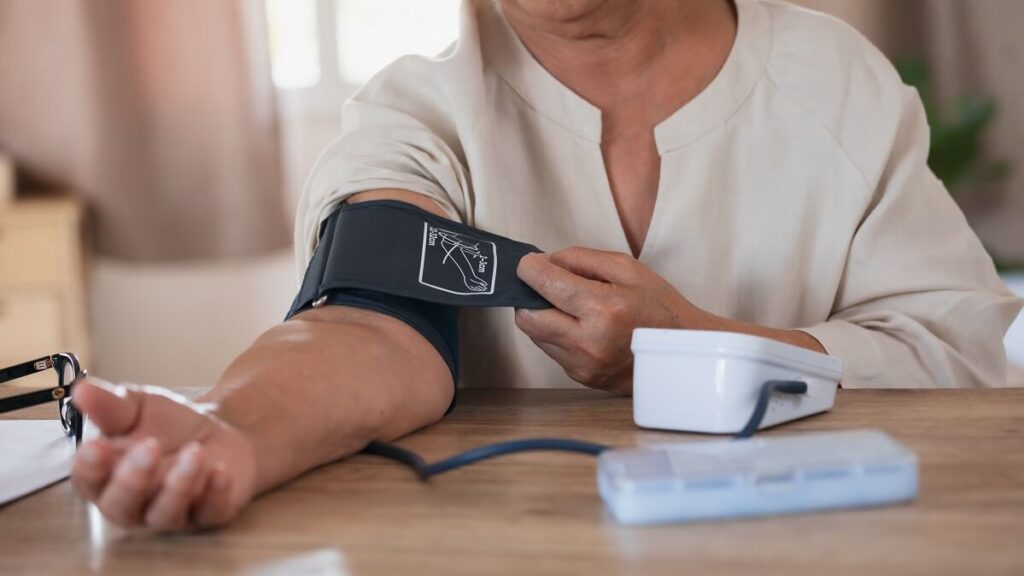If you’re middle-aged and your blood pressure rises substantially when you stand up, you may be at increased risk of a serious cardiovascular event, research shows.
High blood pressure, also known as hypertension, is a leading risk factor for chronic conditions such as coronary heart disease, heart failure, stroke and chronic kidney disease.
According to the Australian Institute of Health and Welfare (AIHW), around one in three people aged 18 and over would be considered to have high blood pressure.
A study published in the peer-reviewed journal Hypertension has found that for middle-aged people, a rise in blood pressure immediately after standing could be a key indicator of future heart problems.
In addition, those with hypertension are five times more likely to have impaired cognitive function and twice as likely to experience reduced executive function, dementia and Alzheimer’s disease.
When moving from a sitting to a standing position, your blood pressure usually drops slightly due to gravity dragging your blood down towards your feet and away from your heart.
The research team set out to specifically investigate whether when the opposite occurring (blood pressure rising after standing) was an indicator of more serious future heart problems.
The study followed 1207 participants aged between 18 and 45 who had been diagnosed with hypertension, but not bad enough to warrant medical intervention. All participants were assessed as being at low risk of major cardiovascular diseases.
Participants’ blood pressure was measured while in various physical positions such as sitting, standing and lying down. In 120 of the participants (around 10 per cent) blood pressure increased when standing.
Participants were then measured over a 17-year follow-up period in which 105 serious cardiac events were recorded, including heart attack and stroke.
The researchers found that the 120 participants identified were almost twice as likely to experience a serious cardiovascular event.
“The findings suggest that blood pressure upon standing should be measured in order to tailor treatment for patients with high blood pressure and, potentially, a more aggressive approach to lifestyle changes,” says Dr Paolo Palatini, lead author of the study.
“This finding may warrant starting blood pressure lowering treatment, including medicines, earlier in patients with [an] exaggerated blood pressure response to standing.”
While hypertension can be tackled with medication, it can usually be resolved with some lifestyle changes. The most common causes of hypertension are a sedentary lifestyle (with little or no exercise), smoking, being overweight and a diet high in salt.
Regular exercise along with a diet rich in fresh fruit and vegetables, nuts, seeds and wholegrains can often be enough to get you blood pressure down to safe levels.
Also read: Almost half can’t identify heart attack symptoms, study finds

